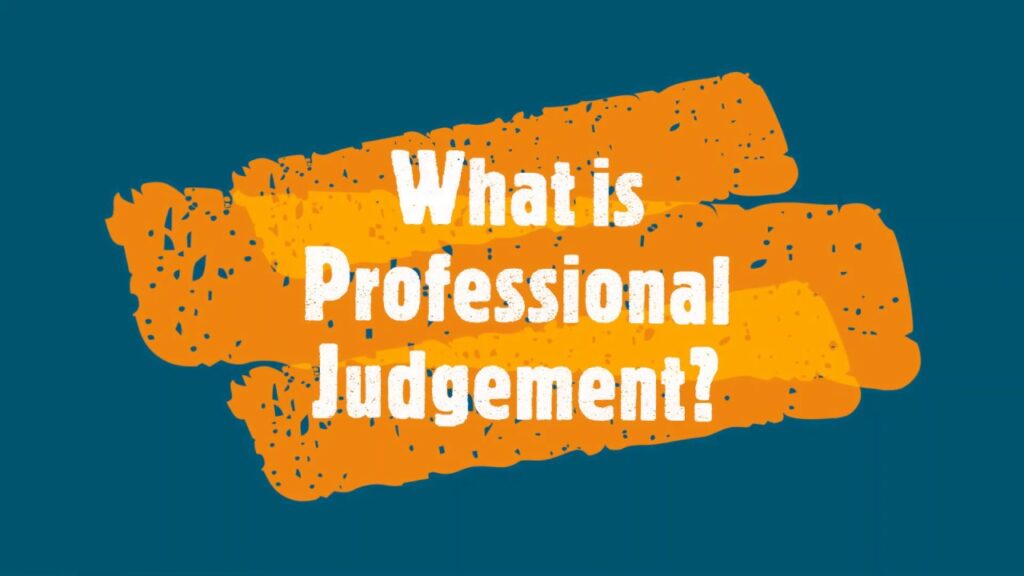Over the years, in my various roles, I have heard the term “professional judgement” used to explain why a professional made a particular decision or a rationale for a course of action taken in respect of a victim/survivor or perpetrator of domestic abuse. I have always found this to be a curious phrase which gets banded about without thought.
I am not dismissing this phrase, and, in many circumstances, it fits perfectly and is a genuine rationale for a decision made or a course of action taken.
However, I have heard this phrase used many times whilst knowing that the person using their ‘professional judgement’ does not have even a basic understanding or knowledge for their judgement to be professional or safe when it comes to domestic abuse.
- New jobs don’t usually come with an automatic understanding and enough knowledge of the complex multi-layered psychological process that is domestic abuse to make safe decisions based on ‘professional judgement’
- Few jobs come with a detailed understanding of the various methods, tactics and narrative used by abusers to perpetrate their abuse, control and sometimes violence over their current or ex-partner. Not being able to recognise or identify abusive patterns of behaviour impacts on a professional’s judgement and decision-making
- Inductions don’t often cover ‘professional manipulation’ giving you an understanding of the methods, tactics and behaviours perpetrators of domestic abuse use on professionals which would/could impact on someone’s ‘professional judgement’
- If your role includes identifying, assessing reviewing or managing risk, how much of your judgement is based on a professional understanding of how the abuse is perpetrated, if it is a dynamic or static risk and the personality type of the perpetrator
- If your role involves support work or behaviour change, would your judgement and decision-making be more professional is you have a comprehensive understanding about trauma, different types of trauma, stages and phases of trauma, the signs and symptoms of trauma and how someone affected may present, the principles that underpin trauma informed support, trauma treatments that can help manage trauma and how to minimise vicarious (secondary) trauma?
Any decision made or course of action taken which affects a victim/survivor or their risk of further abuse or harm in general cannot be called ‘professional judgement’ without at least some of the knowledge and understanding detailed above.
Most professionals will come into contact with known, suspected or unknown victim/survivors of domestic abuse; how you respond can be the difference between someone identifying their relationship as abuse, naming it as such or taking their first safe steps to a new life, free of violence and abuse OR making someone feel judged and responsible for what they are experiencing, resulting in them withdrawing back into the abuse, never to be talked about again.
Are you a professional who comes into contact with people who are perpetrating abuse?
- How would you know?
- What are you listening out for?
- How are you identifying professional manipulation towards you or your colleagues and how could that be clouding your judgement about the perpetrator?
- Are you inadvertently enabling the perpetrator to continue their abuse?
I have met many professionals who genuinely have good intentions and want to do their best for their service users, patients, clients or customers but with no training or understanding of the dynamics of domestic abuse, professional manipulation or trauma, there is a higher chance of them over promising then not being able to deliver or fobbing someone off with misinformation about their choices, possibly preventing that person from being able to safely leave the abuser or from getting a fair outcome or from getting appropriate, effective and safe support and delaying their healing process.
How a professional reacts and responds depends wholeheartedly on their understanding, knowledge, values, beliefs and attitudes towards domestic abuse as an issue and the people who are affected by it.
Without training we are assuming that professionals will automatically have the knowledge, understanding & skills needed to base their judgement on and respond appropriately.
In reality without that knowledge and skill set there is a danger of prolonging the complex trauma experienced by the victim and increasing the risk of escalation in frequency or severity of violence and abuse causing serious injury or murder of the genuine victim.
MAKE THE TERM ‘PROFESSIONAL JUDGEMENT’ MEANINGFUL
CONTACT MALKA LIVINGSTONE TO DISCUSS TRAINING REQUIREMENTS



